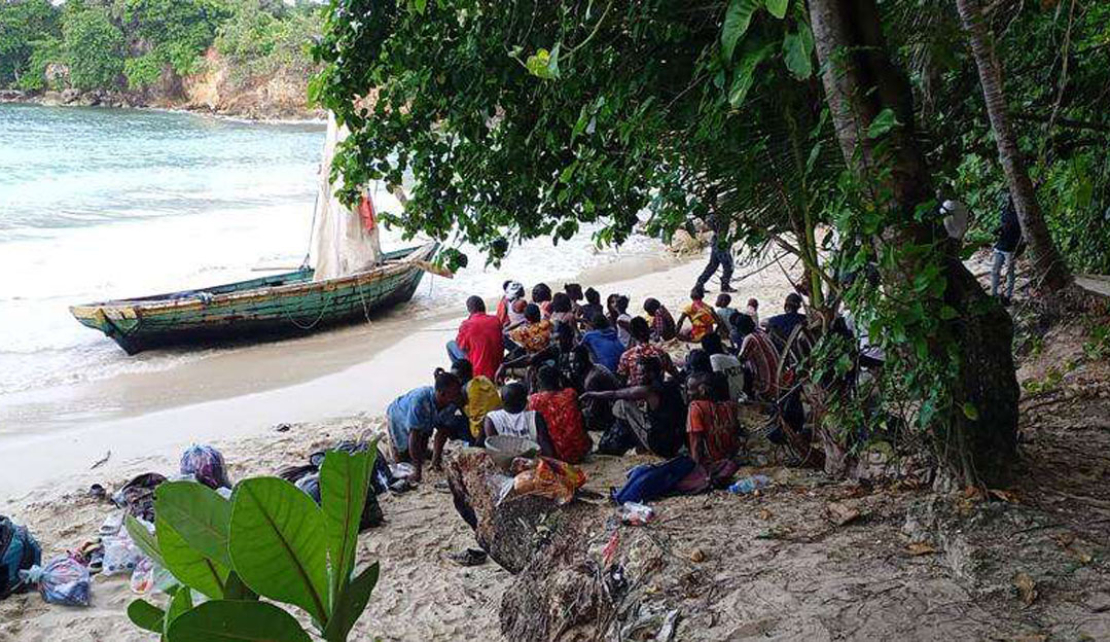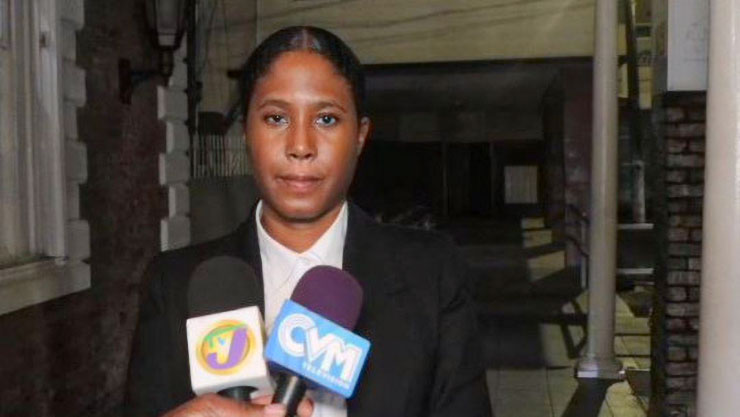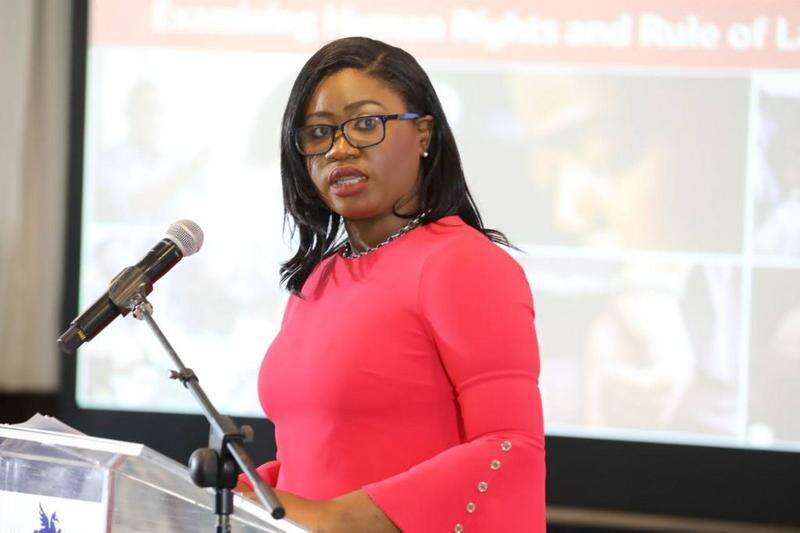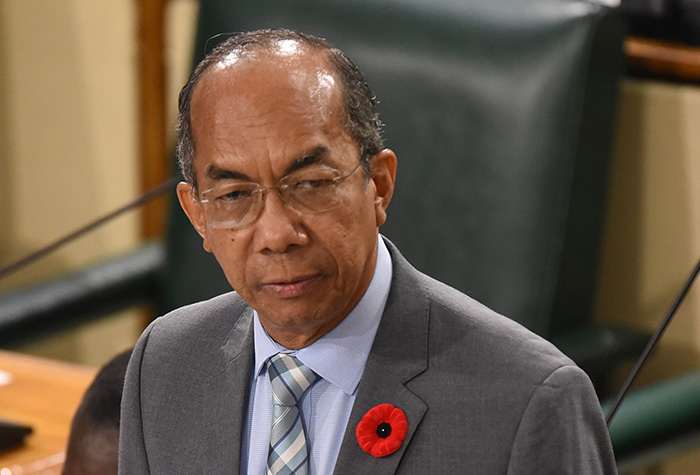JAMAICA'S Continued Hypocritical Response to the Unfortunate Haitian Dilemma

MONTEGO BAY, Jamaica December 10, 2023 - In its response to the growing Haitian refugee crisis, the Jamaican government has been promptly repatriating Haitians who arrive in the island seeking refuge from unbearable conditions in their country, drawing criticism from human rights groups and advocates.
While the government cites security and legal procedures, critics argue that this rapid return policy lacks humanitarian consideration due process and violates its signed international conventions, particularly that of "refoulement."
Mickel Jackson, Executive Director of Jamaicans for Justice, speaking on Radio Jamaica's "Beyond the Headlines," expressed deep concern over the ongoing situation. "These are not just numbers; they are people fleeing dire circumstances, seeking refuge," Jackson stated. "Each individual deserves an assessment before we decide their fate. Sending them back without proper evaluation is not just a policy issue; it's a humanitarian one."
The situation took a critical turn last week when another group of Haitians, shortly after arriving in Portland, were sent back to their homeland without access to legal counsel. This has sparked a wider debate on the need for a more empathetic and legally sound approach to handling asylum seekers.

"These individuals are fleeing extreme violence and instability in Haiti, seeking safety and a chance to rebuild their lives," she said. "Yet, upon arrival in Jamaica, they are denied the basic right to due process. It's a humanitarian crisis unfolding at our doorstep."
Refugees are given a special status in recognition of the fact that they have lost the protection of their own country.
For instance, states like Jamaica and the United States which may not have ratified the Refugee Convention but have ratified the 1967 Protocol, are bound to apply the Convention’s provisions.
The Refugee Convention imposes several obligations on countries relating to the treatment and protection of asylum seekers and refugees.
The principle of non-refoulement is one of the most important principles in the Refugee Convention. It requires (a) that countries do not send refugees to a place where they will face a well-founded fear of persecution, nor to any other country that might send them to such a place.
(b) Providing refugees with a legal status, including rights such as access to employment, education and social security;
(c) Not punishing refugees for entering ‘illegally’ – that is, without a passport or visa.
The effect of the Protocol means that the Refugee Convention now applies universally in those States which have adopted the Protocol.
The exceptions are: Turkey, which expressly maintains the geographical restriction; Madagascar, which maintains the geographical restriction and has not adopted the Protocol; and St. Kitts and Nevis, which has not adopted the Protocol.

These rights include, but are not limited to, the right to non-discrimination (article 3), the right to work (article 17), freedom of religion (article 4), the right to housing (article 21), the right to not be penalised for illegal entry (article 31), the right not to be expelled from a country unless the refugee poses a threat to national security or public order (article 32), and the right not to be sent back to a country where their life or freedom would be threatened (i.e. the principle of non- refoulement) (article 33).
Conversely, article 2 of the Refugee Convention requires that refugees abide by the law in the country that grants them protection.
While there may be no specialist international refugee court or tribunal that is responsible for monitoring whether or not countries comply with the Refugee Convention, the United Nations High Commissioner for Refugees (UNHCR) supervises how countries apply the provisions of the Refugee Convention.
This includes monitoring the situation of refugees and engaging with governments in relation to issues of concern.
The plight of Haitians in Jamaica starkly contrasts with their treatment in other countries, raising questions about the fairness and equality of the current policies.
While countries like Guyana have collaborated with United Nations agencies to provide protection services to Haitian migrants, in Jamaica, the response has been markedly different.
Alleyne points to the effectiveness of refugee status determination procedures in other nations, like for Ukrainian refugees, as a model that could be adopted for Haitians.

In a recent interview with Radio Jamaica News, Dr. Chang dismissed claims of due process neglect, asserting that the government is diligently adhering to international law while protecting national security. "We are in a challenging position, balancing our humanitarian responsibilities with the imperative to safeguard our borders against illegal activities," Dr. Chang stated.
The debate over the treatment of Haitian refugees in Jamaica is intensifying amid these conflicting views. On one side, there's the government's stance focusing on legal and security concerns; on the other, human rights groups and advocates are calling for a more compassionate and equitable approach.
This tension underscores the complexity of the issue, where the need for security intersects with the imperative to uphold human rights and international law.
Freedom Imaginaries launched the '#WithHaitianRefugees' campaign, aiming to garner regional and international support for a more humane policy towards Haitian refugees and asylum seekers.
The campaign, which was kicked off with a virtual press conference, saw solidarity statements from various organizations, including the Haiti-Jamaica Society and Human Rights Watch.
It's a call to action, urging the Caribbean Community and international bodies like the United Nations and the Organization of American States to establish a more coordinated and compassionate approach to this crisis.
The human rights concerns extend beyond the borders of Jamaica, with alarming statistics emerging from Haiti itself. According to recent reports, Haiti has witnessed over 3,900 deaths and 2,951 kidnappings due to gang-related violence since the beginning of the year, exacerbating the urgency of the refugee crisis.
The internal displacement of nearly 200,000 people within Haiti underscores the dire situation that drives many to seek asylum elsewhere, including in Jamaica.
"Haiti is going through one of the most difficult times in recent history.
— United Nations Geneva (@UNGeneva) December 8, 2023
5.2 million Haitians today are in need of humanitarian assistance.
4.35 million people face acute food insecurity." @UlrikaR_UN of @UNHaiti gives an overview of the dire situation in #Haiti ߇�繠pic.twitter.com/KRFZEE7XD7
In the midst of this escalating crisis, the stance of the Jamaican government remains a point of contention. National Security Minister Dr. Horace Chang reiterated the government's commitment to assisting Haiti but maintained the necessity of the rapid return policy for those entering Jamaica illegally.
This policy, he noted, is not specific to Haitians but applies to all illegal migrants, citing recent repatriations of individuals from other nations, including India.
However, critics argue that this approach overlooks the unique and desperate circumstances faced by Haitian asylum seekers. Malene Alleyne of Freedom Imaginaries, in her advocacy, emphasizes the lack of response to asylum applications as a critical flaw in the government's policy.
"It's not just about rapid returns; it's about ignoring the due process rights of individuals who are fleeing unimaginable horrors," Alleyne stated. "We are calling for a humane approach that respects international law and the dignity of every person seeking refuge."
The situation presents a complex challenge for Jamaica, balancing humanitarian responsibilities with national security concerns. The contrasting views between government officials and human rights advocates highlight the need for a nuanced approach that addresses both the legalities of immigration and the humanitarian needs of refugees.
In conclusion, the ongoing debate in Jamaica over the treatment of Haitian refugees reflects broader regional and international challenges in managing migration crises. As the situation in Haiti continues to deteriorate, the need for a coordinated, compassionate response becomes ever more pressing.
The world watches as Jamaica navigates this delicate balance, with the hope that a solution respecting both human rights and national security can be found.
